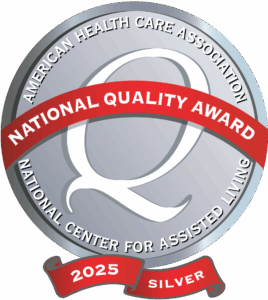May is Better Speech and Hearing Month, a time to raise awareness about communication disorders and let people know that there are many treatment options that can improve the quality of life for those who experience problems speaking, understanding or hearing. This year’s campaign is “Communication Across the Lifespan,” highlighting the important role communication plays at every stage of one’s life.
Did you know that speech therapists treat language, hearing, voice, oral motor, swallowing and cognitive disorders?
At least 20 percent of US adults, at some point in their lives, have a significant problem with hearing, balance, taste, smell, voice, speech, language or swallowing. Communication disorders can compromise physical and emotional health and often affect the social, educational, vocational and recreational aspects of life.
What things does a speech-language pathologist provide treatment for?
- For Cognitive/Communication:
- Immediate, short-term and long-term memory
- Working memory
- Executive function and planning
- Sustained, divided and alternating attention
- Processing
- Sequencing
- Language
- Vocabulary
- Syntax, grammar and morphology
- Literacy
- Encoding, decoding and interpreting
- Non-literal language
- Functional Communication (getting wants/needs known)
- Swallowing
- Oral control of food and water
- Oral hygiene
- Prevention of food/water going into the airway during meals
- Judgment and attention during eating
- Diet consistency
- Hearing loss which can be due to:
- Genetic causes
- Complications at birth
- Infectious diseases
- Chronic ear infections
- Drug Use
- Exposure to excessive noise
- Aging
Seniors and Speech and Swallowing Disorders
As people age, their chances of suffering a stroke, dementia or other medical issues increase, which also increases the chances of a resulting communication or swallowing disorder. It is not uncommon for dysphagia (swallowing disorder) to result from ALS, Parkinson’s Disease, head/neck trauma, or even chemoradiation in some cases. Similarly, after an injury to the brain (often a fall), aphasia could develop, resulting in varying degrees of impairment in language expression and comprehension.
For seniors struggling with communication disorders, they may not be able to successfully describe what they need, where they hurt, or what is wrong; which could result in an emergency situation or, at the least, a high level of frustration. Experiencing difficulty swallowing or eating can quickly complicate or lead to additional health concerns for our senior population.
Seniors and Hearing Disorders
With 37.5 million American adults having some degree of hearing difficulty, hearing loss is a common and under-diagnosed disability. Regular screening is necessary as 1 in 8 people in the US aged 12 and older has a hearing loss in both ears, based on standard hearing examinations. It is estimated by 2050, one in ten people will live with a disabling hearing loss.
Age related hearing loss has a gradual onset as a person ages. The loss of hearing can be so gradual that one may not even realize what is happening. Sudden deafness, or rapid loss of hearing, should be considered a medical emergency. Hearing loss is under-recognized and under-treated. Untreated hearing loss in seniors carries significant risk factors.
- Increases risk of falls by 50%5x more likely to develop dementia
- 3x more memory and balance issues
- 1 in 10 people will suffer from depression
- Hearing loss is more common in people with diabetes
- Hearing health and heart health are linked (Inner ear is sensitive to blood flow)
- Hospitalization is more likely for those with hearing loss
- Men with a hearing loss have increased risk of mortality (hearing aids made a difference)
- Fitness helps hearing (Higher level of physical activity associated with lower risk of hearing loss)
- Common pain relievers have been associated with an increased risk of hearing loss
- Chronic kidney disease is linked to increased risk of hearing loss
- After hypertension and arthritis, it is the most common chronic health problem in older people
Living the Best Life
It is impossible to overstate the importance that communication, in any form, has on our lives. From our earliest days as humans, communication has played a role in connecting us to one another. From pictures, signs or gestures, music and art, to the written or spoken word, the need and ability to communicate is integral to our daily lives. Interpersonal communication is a critical tool for living.
At American Senior Communities, we offer services to address the disorders described above. Our Moving Forward Rehabilitation Program, Outpatient Therapy and Medically Integrated programs for Seniors offer extensive therapies designed for those striving to be engaged in the best life possible.




